Whether you love doing them or not, dishes must be washed. And the dish soap you use really does matter more than you might think.
In the grand scheme of household chemicals we use on a regular basis, dish soap can seem the least likely to harbor harmful chemicals. When compared to oven cleaners, bleach, and other heavy-duty cleansers, it’s easy to see why we may think that; dish soap smells less harsh, we often use it just to wash our hands, and we use it on dishes, flatware, and glasses that all make contact with our food. Safe, right?
Not so fast. According to the Environmental Working Group, an evaluation of 326 dish soaps found that 65 percent scored “Ds” and “Fs” on an A to F rating.
What’s in dish soap?
The main active ingredients in dish soap are called surfactants, whether you’re using a natural product or not, it likely contains surfactants if you’re expecting it to clean your dishes. Not all surfactants are harmful; ionic surfactants can be mild, while non-ionic surfactants can be toxic. Surfactants work by attaching to both water and the foodstuffs you’re washing off of your dishes, so they play a crucial role in dish soap formulations.
Dish soap manufacturers are not obligated to list all ingredients, however, and similar to fragrances and cosmetics, a bottle of dish soap may contain petroleum-based surfactants, ethanolamines, artificial dyes, formaledyde — a known carcinogen — and phthalates, all of which pose human and environmental risks. Other chemicals can include chlorine, carbamazepine, chlorophenylphenol, and diethanolamine. These chemicals are linked to a number of health issues including metabolic disorders, neurological disorders, and some forms of cancer.
But it’s not just our own health that’s impacted by our dish soap choices. Some of these chemicals pose even greater dangers to aquatic animals and plants. As they accumulate in animals, they can have devastating effects across the food chain. Chemicals in our oceans also decrease the ocean’s ability to sequester carbon, further accelerating the impact of climate change.
Does eco-friendly dish soap work?
Making the shift away from conventional dish soap for your health and the planet is one thing, but if the soaps don’t work, you may find yourself frustrated and returning to the harmful products. There’s good news: eco-friendly dish soap works! Eco-friendly dish soap is made with natural plant surfactants that work the same way as conventional surfactants. So, they’ll attach to grease and grime and help unstick all of your pots and pans.
While your soap may be eco-friendly, what about that plastic bottle? Plastic isn’t eco-friendly, but a number of brands are using recycled and recyclable bottles. Many also offer refill packaging and encourage using a reusable dish soap dispenser. Aluminum and refillable options are now growing in number, too. Bar soaps are going to be your best bet if you want a truly sustainable option that’s free from plastic.
Eco-friendly dish soaps
Ready to cut the chemicals out of your dishwashing? These eco-friendly dish soaps are great places to start. Many are available at major supermarkets and some are a bit more exclusive, and available directly or via zero-waste stores. You can also find eco-friendly dish soap in bar form, which is not as common in conventional soaps.
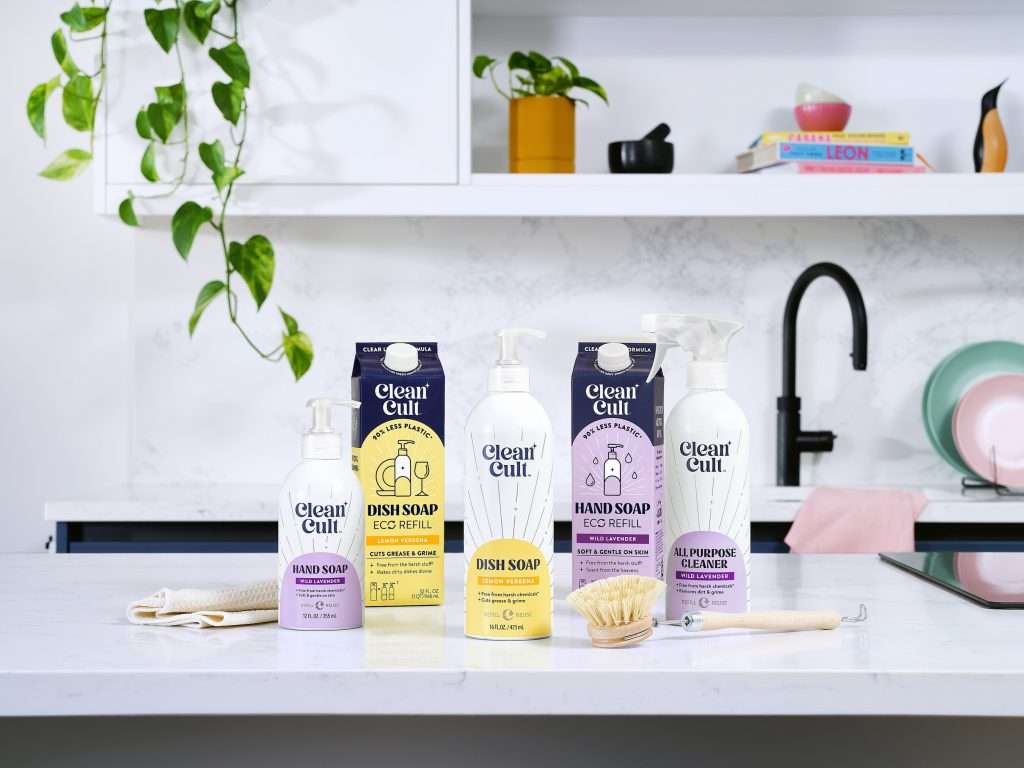
1. Cleancult
Cleancult was not only one of the first to use recyclable milk carton refills for its dish soap to help keep your waste down, but it also recently became the first mass-market brand to launch dish soap in aluminum (along with all-purpose cleaner). It’s not only better for the planet and your body, but it’s a budget-friendly option, too, with the new items clocking in at under $5 at Walmart. Use the coconut-powered eco-friendly soap right out of the carton or fill up your dish soap dispenser. Either way, you’ll be cutting through grease and grime without the guilt.

2. Public Goods
Public Goods says its dish soap is powerful at fighting grease and stubborn baked-on foods. A concentrated formula that’s free from dyes and synthetic fragrance, the soap is greywater friendly and fully biodegradable.
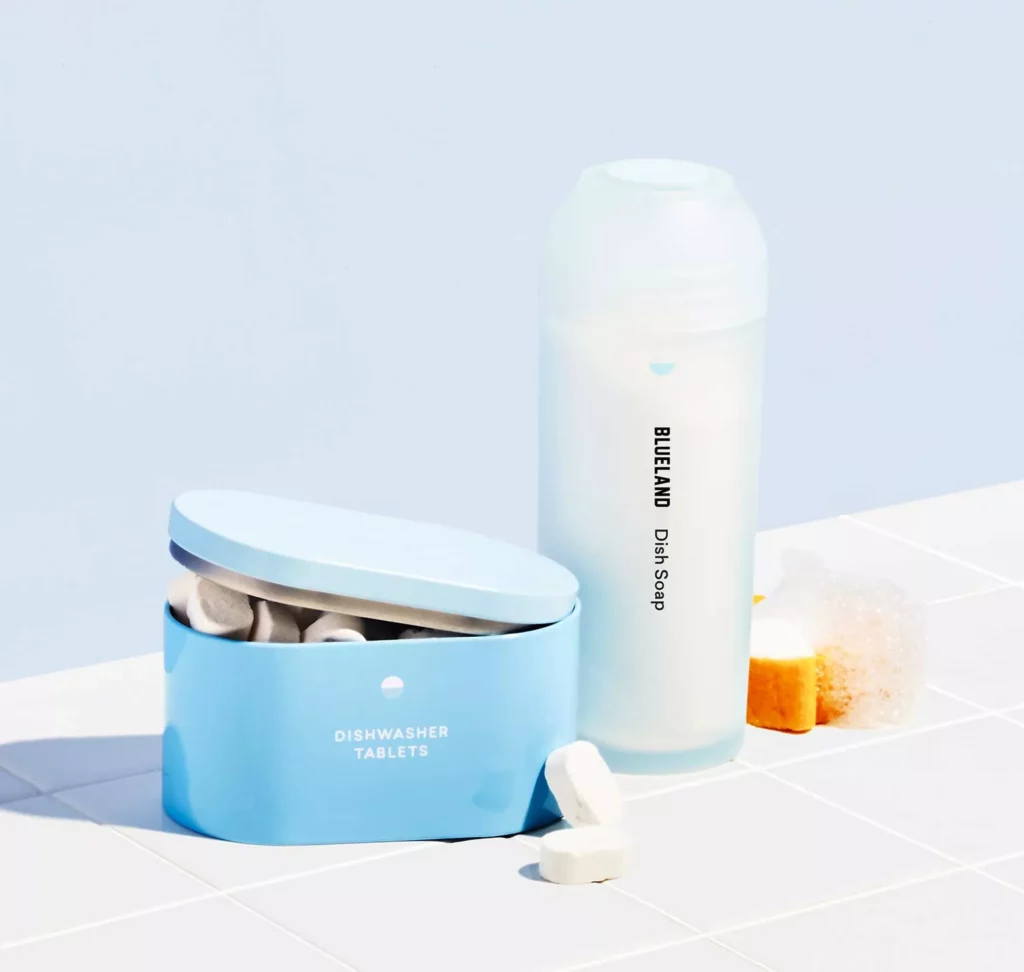
3. Blueland
Made with effective plant-based cleansers, Blueland says its soap has been independently tested for performance on dishware, glassware, silver, and porcelain. Just one of its refillable Forest Shakers replaces 30 single-use plastic bottles used in an average home in a year.
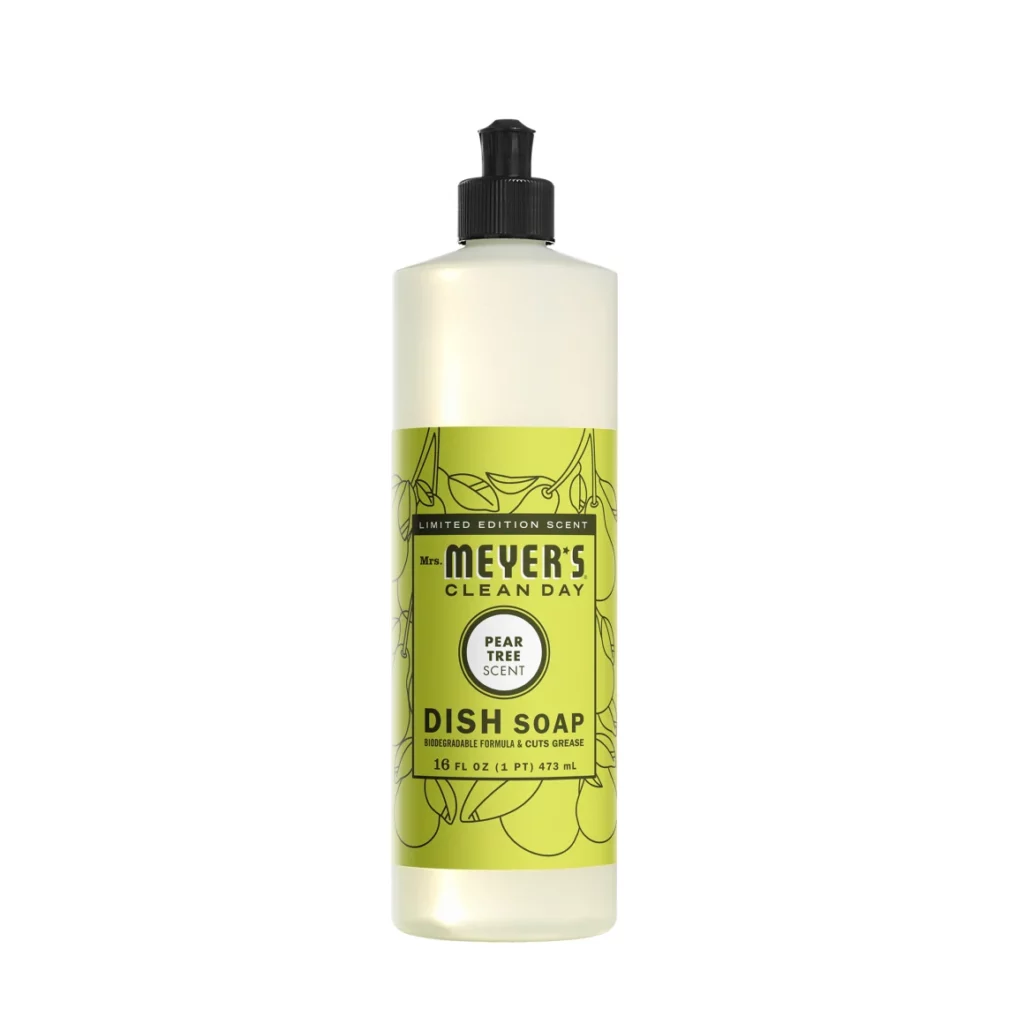
4. Mrs. Meyers
Say goodbye to grease and caked-on foods and hello to sparkling dishes and a delicious range of scents you’ll want to use all over. Mrs. Meyers’ plant-based dish soaps are biodegradable, free from artificial colors, phthalates, and parabens.
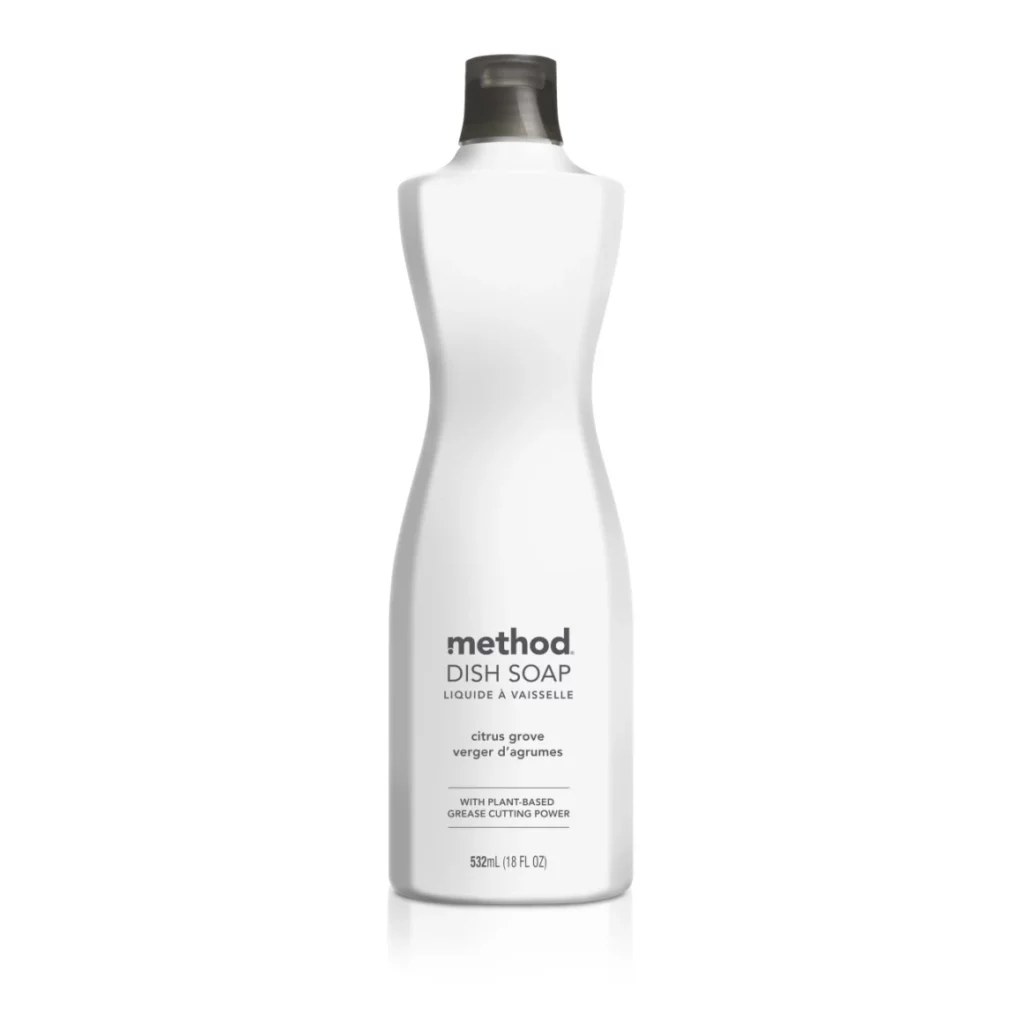
5. Method
Method’s liquid dish soap is fully biodegradable, made with plant-based grease fighting surfactants, and free from phthalates, parabens, and triclosan. The bottle on this dish soap is made from 65 percent recycled plastic.
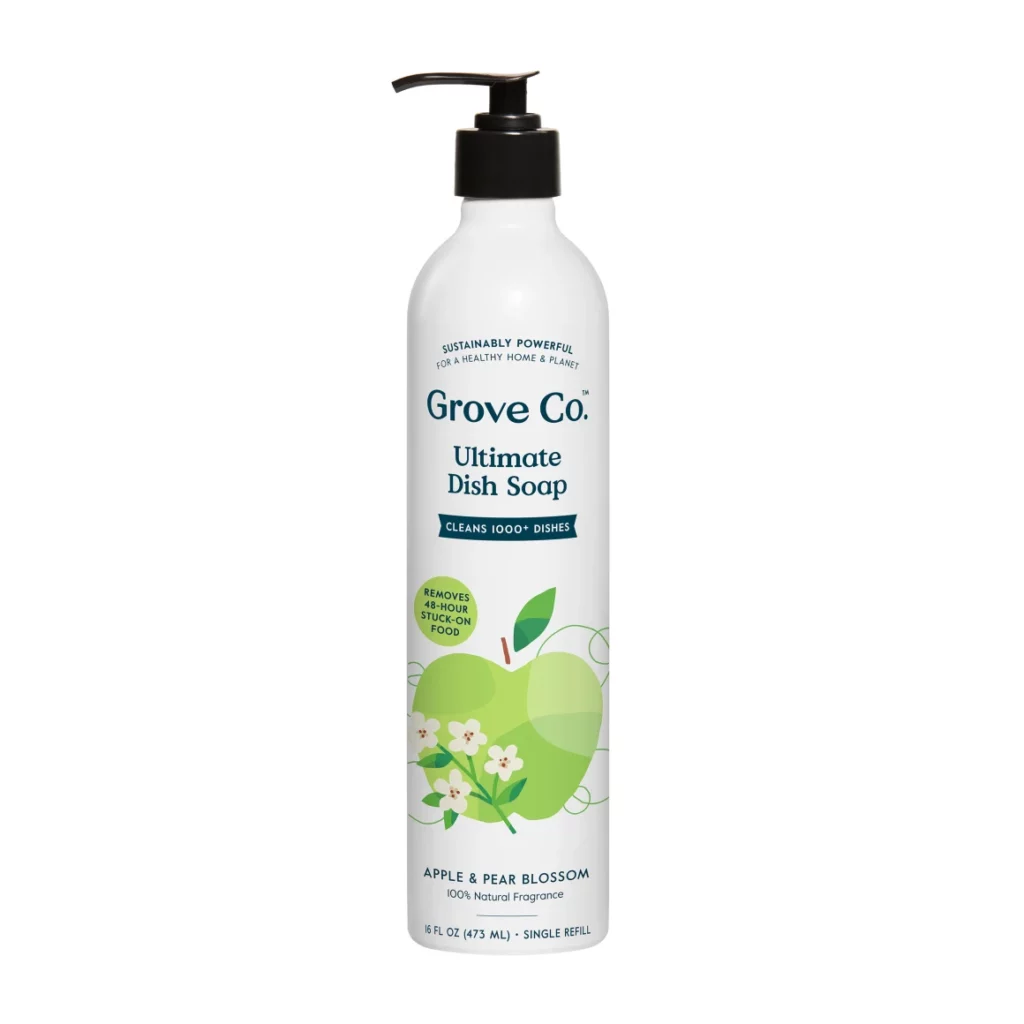
6. Grover Collaborative
Grove Collaborative packages its sustainable dish soap in a recyclable aluminum bottle. Use your own dispenser or grab one of theirs. The plant-based soap is gentle on hands but tough on grease.
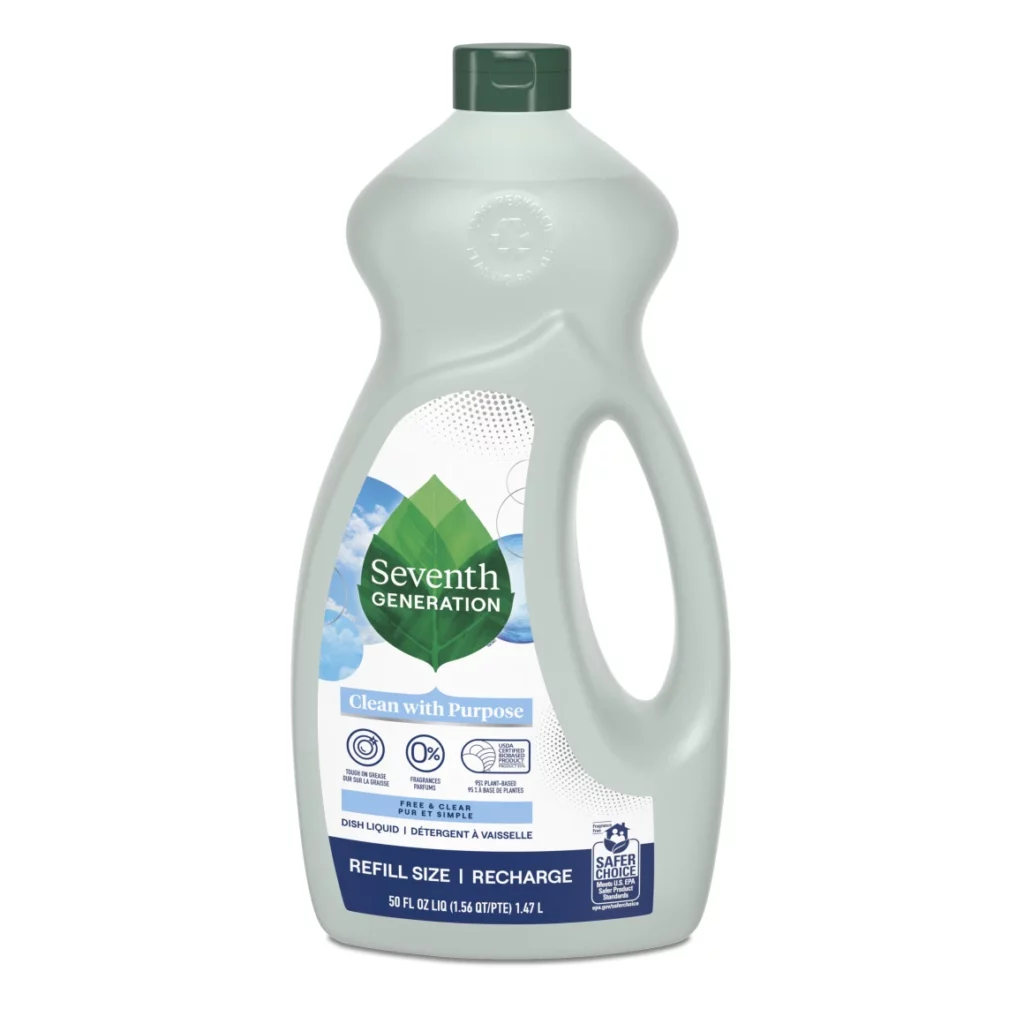
7. Seventh Generation
The OG of eco-friendly dish soaps, Seventh Generation is still going strong with its safe and sustainable dish soap options. It now offers refill sizes to reduce your plastic use. From unscented to lavender, the fragrance options are all hand soap worthy, too.
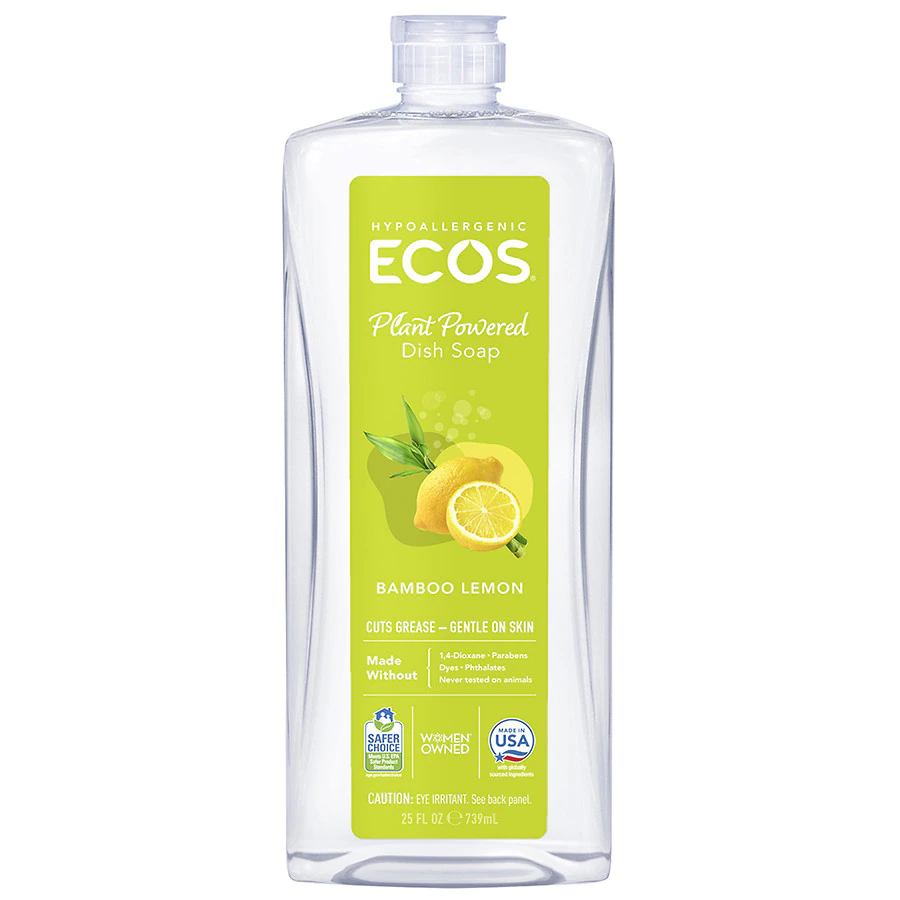
8. Ecos
No harsh chemicals, just sparkling clean dishes. Ecos’ plant-based ingredients are tough on grease but gentle on your hands. The Climate Positive company has more than 150 Safer Choice certified products from dishwashing to laundry detergent and more.

9. Homecourt
Courteney Cox’s Homecourt may be the new home cleaning label on the block but it’s not wasting any time catching up. Made with all natural and biodegradable ingredients with elevated scents, this dish soap is sure to be a kitchen counter must.
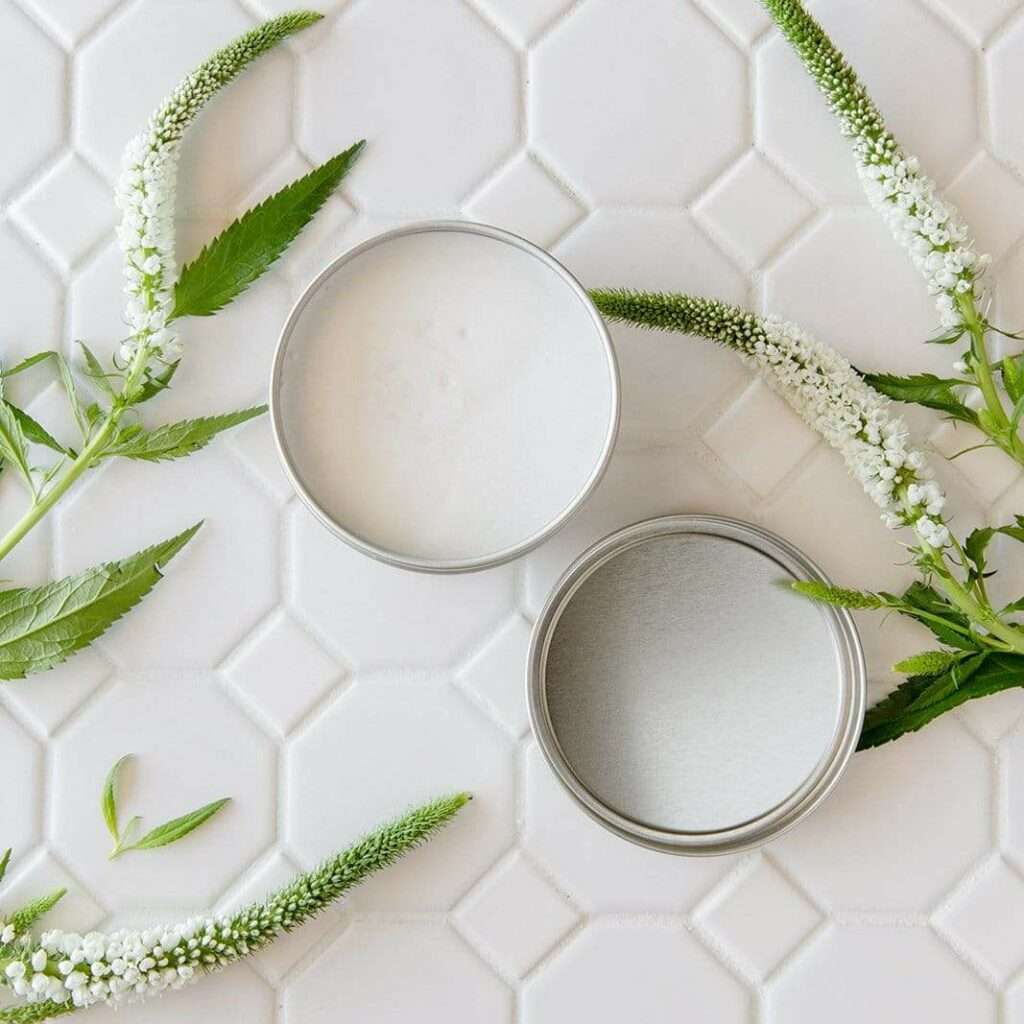
11. Suds & Co.
A concentrated block soap, Suds & Co. cuts out waste while cutting out grease with organic ingredients. The soap comes in a no-mess refillable metal tin. Use as you would a body bar soap: suds up your sponge or scrubber and say goodbye to grease!
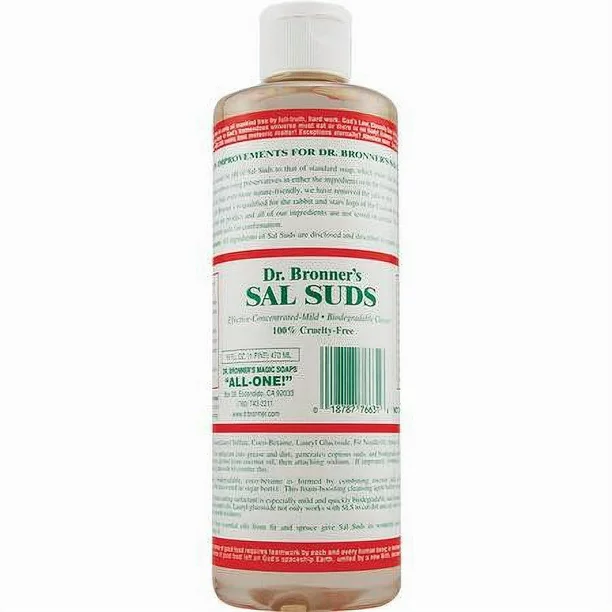
12. Dr. Bronner’s Sal Suds
From your favorite soap company in the bathroom, Dr. Bronner’s all-purpose Sal Suds can get your dishes squeaky clean, too. Not a soap, the Sal Suds Liquid Cleaner is natural surfactant rich, biodegradable, and free from harsh chemicals. Use it on your dishes, floors, bathroom, and more.
You’re going to want to avoid putting dish soap in your dishwasher. It is not recommended to use dish soap in place of dishwashing liquid. Because dish soap gets sudsy with just a few drops in your hands, putting this in your dishwasher will overflow and could leak suds all over your floor. In a pinch, if you don’t have dishwashing soap available, instead of using dish soap, try using vinegar instead.
In most cases, the answer is yes. Hand soap and dish soap are generally similar and hand soap will also remove food particles and disinfect in most cases. The disadvantage to using hand soap is some have strong fragrance such as rose or vanilla that may linger on dishes and porous cutting boards. But hand soap will clean your dishes in a pinch! (So will shampoo and body wash!)
Related on Ethos:
All products featured on Ethos have been independently selected by our editorial team.
When you buy something through our links, Ethos may earn an affiliate commission.


